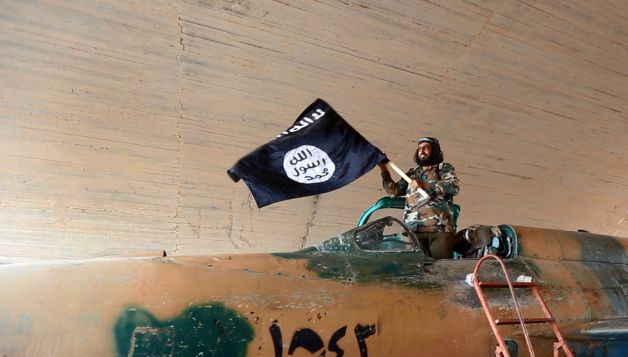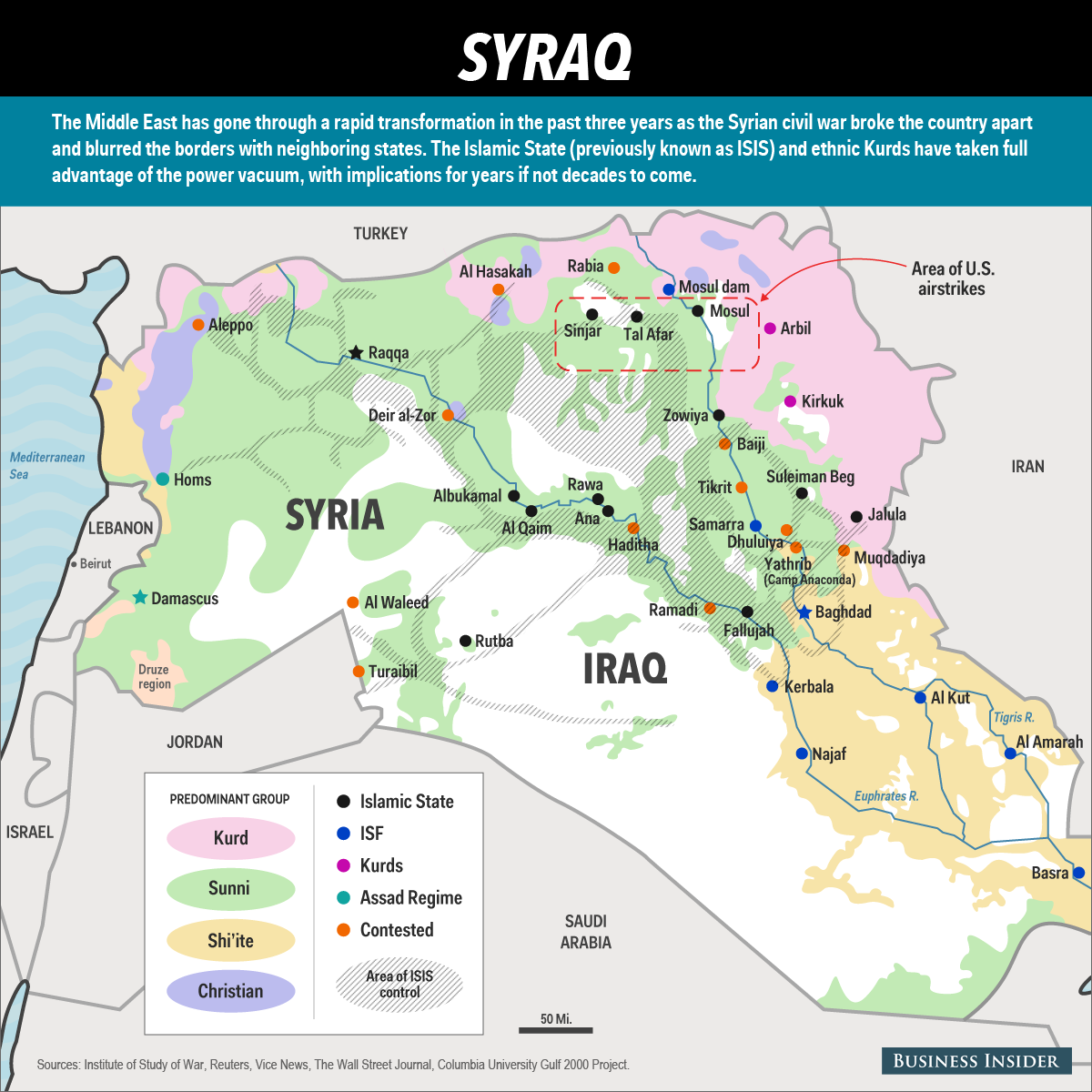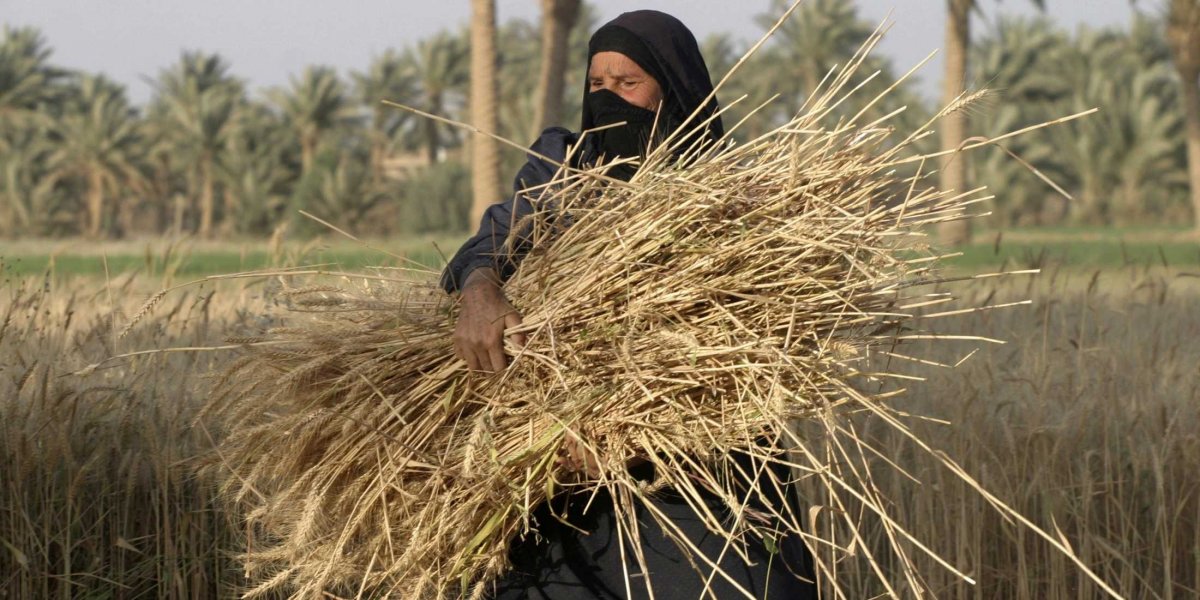Here's How The World's Richest Terrorist Group Makes Millions Every Day
Amanda Macias, provided by

Published 12:44 pm, Wednesday, August 27, 2014

This undated image posted on Wednesday, Aug. 27, 2014 by the Raqqa Media Center of the Islamic State group, a Syrian opposition group, which has been verified and is consistent with other AP reporting, shows a fighter of the Islamic State group waving their flag from inside a captured government fighter jet following the battle for the Tabqa air base, in Raqqa, Syria on Sunday. A U.N. commission on Wednesday accused the extremist Islamic State organization of committing crimes against humanity with attacks on civilians, as pictures emerged of the extremists' bloody takeover of a Syrian military air base that added to the international organization�s claims.
Photo: Uncredited
ISIS is now the wealthiest terrorist organization on the planet,
according to
Foreign Policy. And the Al Qaeda offshoot has the ambition and
perhaps even the organization needed to put its piles of oil and
smuggling-related profits to work, as its several-hundred
page-long annual
report from this past March demonstrates.
For example, ISIS brings in nearly $12 million a month in revenues from extortion and other shady practices in the Iraqi city of Mosul alone in addition to $1 million to $3 million a day selling oil illegally.
Some
experts believe that the group's power is virtually unprecedented,
at least among jihadist organizations. According to Janine Davidson
and Emerson Brookings of the Council on Foreign Relations, ISIS sits
atop "a
volume of resources and territory unmatched in the history of
extremist organizations." The group controls approximately
60% of Syria's oil fields and several oil producing assets
in Iraq.
 Luay
Al-Khatteeb, founder of the Iraq Energy Institute and visiting
fellow at the Brookings Institution,
estimates ISIS's total revenue from oil production at
approximately $2 million a day.
Luay
Al-Khatteeb, founder of the Iraq Energy Institute and visiting
fellow at the Brookings Institution,
estimates ISIS's total revenue from oil production at
approximately $2 million a day.
Oil Wealth
"Put simply, ISIS is in a position to smuggle over 30,000 barrels of crude oil a day to neighboring territories and countries at a price of between $25 to $60 per barrel depending on the number of middle-men involved," Khatteeb wrote for Brookings.
ISIS allegedly sells much of its oil production to intermediaries in Syria, who then transport it to refineries in Turkey, Iran, and Kurdistan, Foreign Policy reported.
Robin Mills, a director at Manaar Energy and author of The Myth Of The Oil Crisis, explained that individuals and nations involved in the sale of oil on the black market would be open to U.S. and EU sanctions as well as Iraqi legal action, if the state were ever to re-establish control over areas that ISIS now rules.
"The practical impact of this may not be much given the small volumes and the difficulty of tracking buyers and sellers," Mills told Business Insider by email.
Control Of Water, Wheat, And Electricity

Oil isn't the only resource that ISIS has leveraged to its advantage. In a recent interview with Der Spiegel, Brookings Doha Center fellow Charles Lister explains how ISIS uses its control of food and water supplies to further its goals:
Money is key here. It is well-known that the IS is almost entirely self-financed. Its money comes from the control and illicit sale of oil and gas, agricultural products like wheat, the control of water and electricity and from imposing taxes within areas it controls. It is literally earning millions of dollars each week, and a great deal of this money is pumped into social services.
ISIS's advance throughout northern Iraq has put vast quantities of prime farmland under the control of the militant organization. Large portions of five of Iraq's most fertile provinces are currently under ISIS control.
These provinces are collectively responsible for producing 40% of the country's wheat crop. The militants have also raided between 40,000 and 50,000 tons of grain from government silos in the north of the country.
Al Arabiya reported that ISIS has transported at least 700 tons of grain from western Iraq into Syria for milling and refining. ISIS then proceeded to sell the grain to the Iraqi government through third-parties in order to raise further funds.
ISIS has expanded this effort recently by making flour using the grain it stole from government mills throughout Mosul.
#ISIS
Began producing flour from government mills in
#Mosul,and
libel it under their name.
pic.twitter.com/JgCnqglAbS
— Ammar karim (@ammar_afp)
August 27, 2014
A source at Iraq's Agricultural Ministry told Reuters that ISIS has placed close to 30% of Iraq's entire farm production at risk.
This scarcity and food insecurity has driven up prices and increased the windfall that ISIS receives from its wheat trade.
